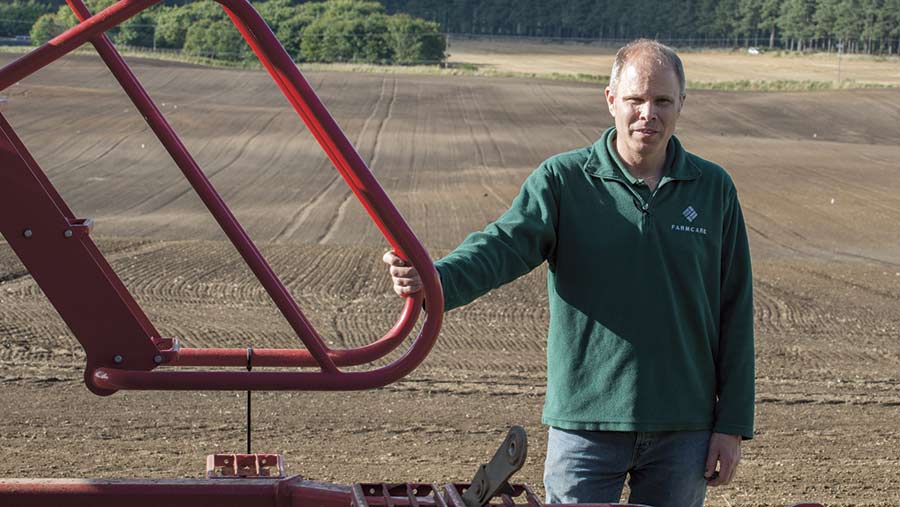Farmer Focus: Farm technology potential yet to be realised
 Robert Drysdale © Angus Findlay
Robert Drysdale © Angus Findlay After a remarkably long dry spell during January, the weather has now turned wet with occasional glimpses of winter when we get some snow.
Hopefully we will get this out of the way now and get a proper spring in a few weeks’ time allowing winter crops to grow away and spring barley drilling to commence.
A few weeks ago I was asked by the AHDB to make a short presentation at their annual agronomy workshop when it came to Inverurie.
See also: Read more from our Arable Farmer Focus writers
It was part of a session on technology in farming, setting the scene on what is happening now on farm and linking into a presentation from Harper Adams University on where things might go in the future.
Reflecting on what we have introduced over the past 15 years in the way of soil and yield mapping, automated sprayer section control and auto-steer in some ways seems major progress.
However, hearing that technically within five years we could wake up in the morning to find that a drone has already been out and checked the crops on the farm and drawn up a work plan for the fleet of automated machines shows the potential that is still to come.
It is likely that regulation and safety concerns about the supervision of drones and automated machines may mean that the timescale is a bit longer.
At a more practical level there will also be some work to do to ensure that automated machines that work well in flat, well-drained, stone-free areas will also work in the hilly, stony and often wet parts of Aberdeenshire.
As one delegate commented, there will always be a need for someone who can work a spade and repair a drain.
Calving progress
Calving has progressed well in recent weeks, with around 60% calving in the first four weeks. An important project this year has been to fit ventilation fans and tubes down the length of the shed to keep fresh air circulating in the building whatever the outside conditions.
I am optimistic that this will have a significant health benefit for the calves and save both the time and costs associated with treating pneumonia in young calves.
Robert Drysdale is farm manager at Farmcare’s 1,610ha business in Aberdeenshire, growing winter and spring barley, wheat and oilseed rape across four contract farming agreements to the south of Inverurie. The farm has 130 beef cows on land less suitable for crop production.

